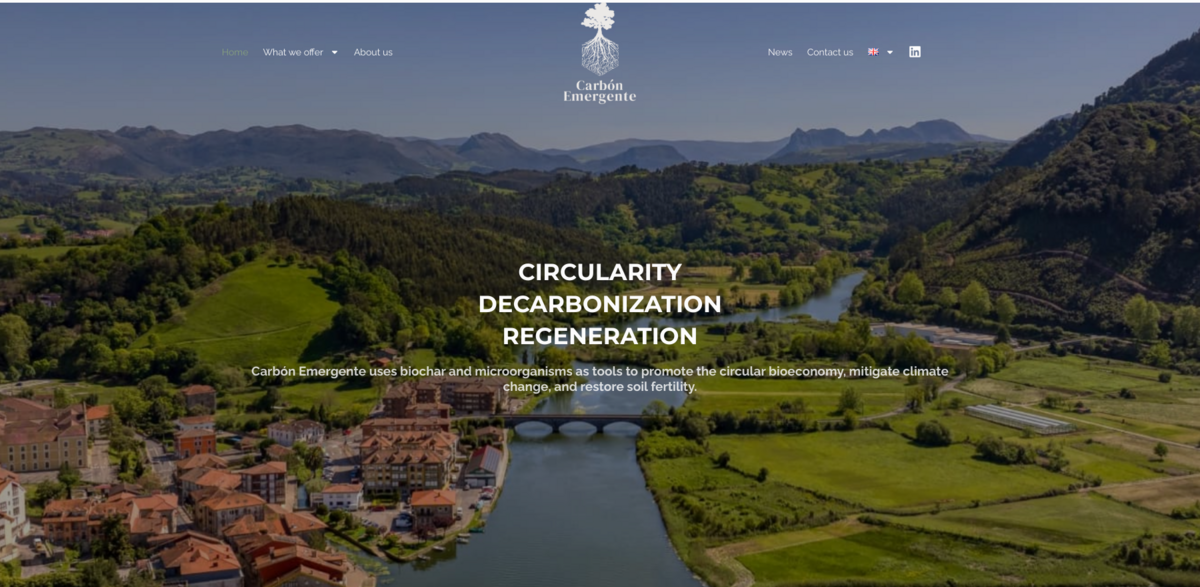What Is Carbón Emergente?
Carbón Emergente is all about using biochar and microorganisms as powerful tools to boost the circular bioeconomy, tackle climate change head-on, and bring life back to tired soils. This project isn’t just about reducing harm—it’s about creating a positive impact that regenerates the environment. At its core, Carbón Emergente embraces a business model that’s circular, carbon-negative, and deeply committed to regenerative development. In a world facing a systemic crisis—think climate change, biodiversity loss, soil degradation, and rural depopulation—this approach offers ambitious, multidimensional solutions that go beyond the usual.
Main Benefits and Key Figures
Carbón Emergente’s impact is measurable and meaningful. Here are some key figures that highlight its reach and effectiveness:
- 0 tons of vegetable waste valorized per year – turning waste into valuable resources.
- 0 tons of biochar produced per year – creating a product that regenerates soil health.
- 0 tons of CO2 equivalent captured each year – contributing to decarbonization and climate mitigation.
Innovative Solutions for Soil and Climate
Carbón Emergente offers a range of innovative solutions designed to restore soil fertility and fight climate change. Their biochar and Hexa amendments are top-notch for regenerating soil health, improving fertility, and even enhancing animal nutrition and well-being. Plus, their carbon credits (CDR) are transparent and permanent, generating social and environmental co-benefits. And if you’re looking to valorize residual biomass and promote circularity in your value chain, their pyrolysis plants are the way to go. It’s a full-circle approach that’s as smart as it is sustainable.
The Science Behind Biochar
So, what exactly is biochar? It’s a type of charcoal made from biomass through an advanced pyrolysis process. But here’s the thing—biochar isn’t just one thing. It’s actually a group of products, each with unique characteristics depending on the biomass source, production technology, and final use. What makes biochar so special? Its ability to create and maintain ideal conditions—temperature, humidity, aeration—that help microorganism communities thrive in the soil. This is crucial because a healthy soil microbiome is the secret sauce for soil structure, water retention, nutrient supply, and pest resistance.
Why Biochar Is a Game-Changer for Soil Health
Biochar has some standout characteristics that make it an ideal amendment for degraded soils:
- High water retention capacity: Keeps moisture locked in, helping plants survive dry spells.
- High cation exchange capacity: Holds onto nutrients and makes them available to plants.
- High porosity: Decompacts and aerates soil, providing a perfect habitat for microorganisms.
- Stability: Stays in the soil for centuries, so benefits build up over time.
These features don’t just improve soil—they regenerate it, making it resilient and fertile again.
Carbón Emergente’s Impact on Climate and Society
- SDG 2: Zero Hunger – by improving soil fertility and agricultural productivity.
- SDG 13: Climate Action – through carbon capture and decarbonization efforts.
- SDG 15: Life on Land – by restoring degraded soils and promoting biodiversity.
- SDG 12: Responsible Consumption and Production – via circular bioeconomy practices.
- SDG 8: Decent Work and Economic Growth – supporting rural communities and sustainable business models.
Understanding the Difference Between Biochar and Charcoal
It’s easy to confuse biochar with regular charcoal, but there are some key differences. Biochar must meet strict requirements throughout its value chain—from sourcing residual or sustainably managed biomass, to efficient production methods that use excess energy, to meeting international standards like those from the European Biochar Certificate (EBC) or the International Biochar Initiative (IBI). Plus, biochar’s final use ensures that carbon stays locked in the soil long-term, making it a true climate solution. The EBC certification acts as a quality and safety seal, giving customers confidence in the product. For those curious, more info is available at the European Biochar Organization.






















